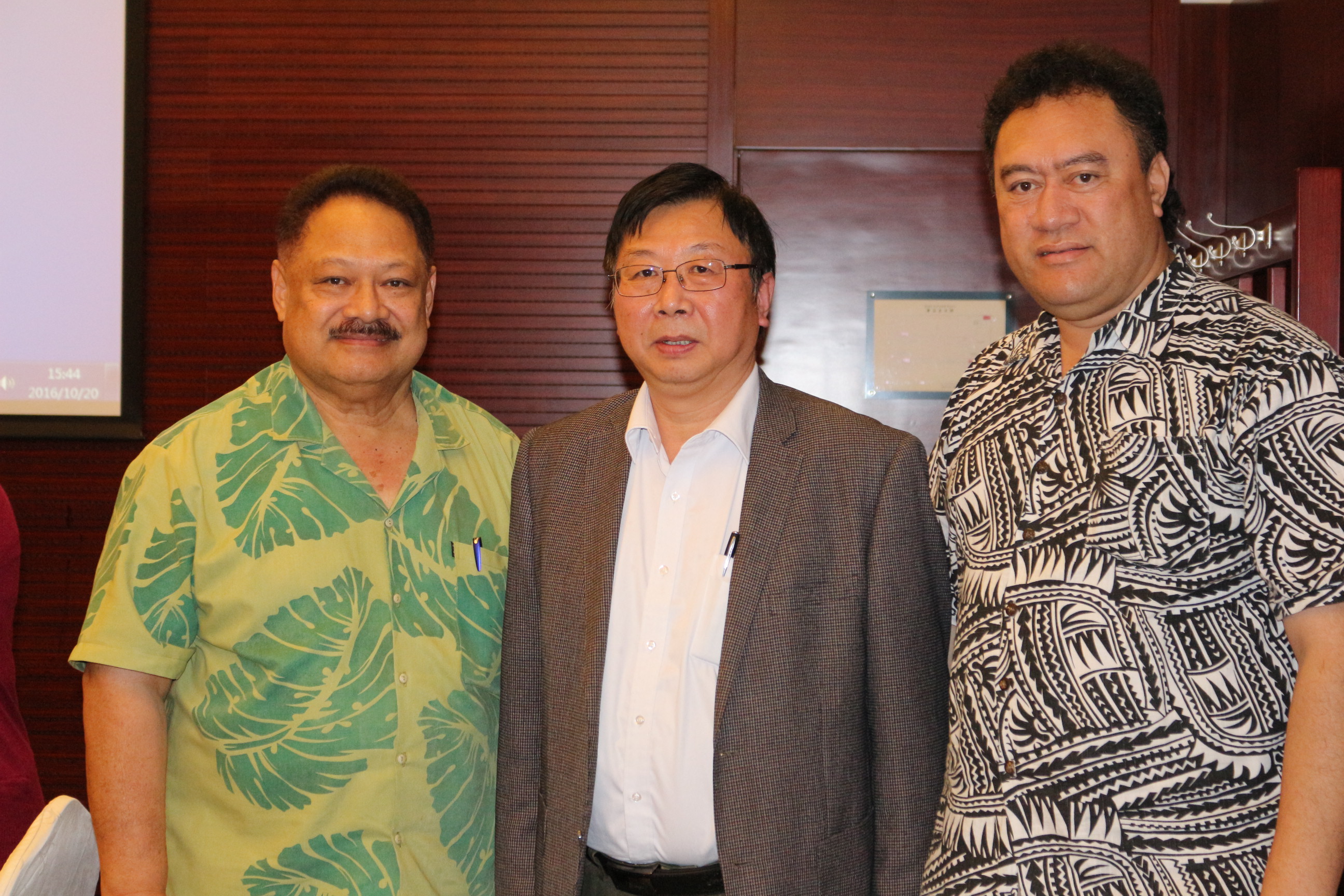A conference organised to provide Pacific Island journalists with first-hand accounts of activities and strategies behind China’s foreign policies had been kicked off in Beijing today.
China wanted to give the visiting reporters a fuller version of the Communist Party of China’s (CPC) philosophy and strategies as well as her diplomatic relationship with the Pacific Islands.
The two-week forum was organised by China’s International Department CPC Central Committee in which experts from various fields would talk about China’s foreign policies for the Pacific Islands (PI) as well as her development projects and involvements in the region.
“We hope this conference gives an accurate picture of China”, the Department’s Director Yao Jiannguo said.
The journalists will have opportunities to visit historical and new development sites as well as meeting local media.
Headed by Deputy Chairperson of Pasifika Media Association and Editor of Taimi ‘O Tonga Media Network – Kalafi Moala the delegation was joined by the New Zealand based Tongan news online Kaniva Pacific News Founder and Editor – Kalino Latu; Ruth Caroline Delaivoni – the Deputy Editor of the Fiji Sun; Makereta Komaidure – Manager and Editor of Pacific News (Pac News); Charles Henry Moi of The Independent State of Papua New Guinea newspaper; Ryan J. David from the Federated State of Micronesia; Verona Parker of Apia TV3, Pai Mulitalo from the Samoa Observer and Ronald Atesh Kumar – Chief photographer of the Fiji Sun.
The meeting
The forum began by briefing the delegation on CPC’s philosophies as well as its form of governance.
On Friday Chinese experts will talk about China’s foreign policies, her relationship with the Pacific Island nations as well as her PI policies,
The journalists will then visit and meet with the Department’s Vice Minister Guo Yezhou.
They will also visit China International Radio and talk about “deepening China PIC cooperation”.
The delegation will visit the BYD New Energy Automobile and a local media on October 24.
They will also visit new local building and construction sites as well as the former residence of Chairman Mao.
During the ten-day conference the journalists will also visit the city of Guangzhou as well as attending the opening of the Guangdong 21st Century Maritime Silk Road International Expo on October 26.
There will be an opportunity for the journos to meet with experts from the centre for Pacific Island Cooperation Studies at the Guangdong University of Foreign Studies and China’s Southern Power Grid.
This Saturday however the delegates will be visiting the Forbidden City.
The historical place was Chinese imperial palace since the Ming Dynasty until the Qing Dynasty.

PI Journalists
The journalists were chosen to represent their various countries by the Chinese embassies in the region.
According to Moala this was the first conference of its kind to be hosted by China for the PI journalists.
Moala told Kaniva News he was glad the journalists could make it to China to take part in this very significant conference.
““It has always been China’s intention in its relationship with Pacific Island Countries to give clear understanding of its policies concerning PICs. This is one of the reasons for inviting senior journalists from certain Pacific states, including Tonga, for a 14-day media forum. It is a joy to be participate with Kalino Latu of Kaniva News in this very important media forum in China,” Moala said.


The forum was funded and hosted by the CPC.
China in the Pacific
China has been increasingly active in the Pacific in the past 20 years after it moved into the Pacific and Africa, building roads, taking over businesses and making loans.
China has spent more than US$2 billion for Island countries since her new aid package for Pacific countries was released in 2013.
Mr Jianguo said: “We are very sincere in our assistance and development in the Pacific”.
Reaction to China’s expansion into the Pacific has been mixed.
Some Pacific governments have looked favourably on Chinese aid.
Fiji has signed several agreements with China for projects that range from road building to dredging. In Samoa, the government has praised China’s involvement.
Tonga and China have open a new tourism opportunity for their countries by signing a free-visa agreement last month.
Not everybody is impressed, however.
The riots which swept the Tongan capital of Nuku’alofa in 2006 had a strong anti-Chinese element driven by resentment at the apparent wealth of some businesses.
READ MORE:
Pōhiva’s warning may come true as China pressures Pacific nations over Spratleys dispute
